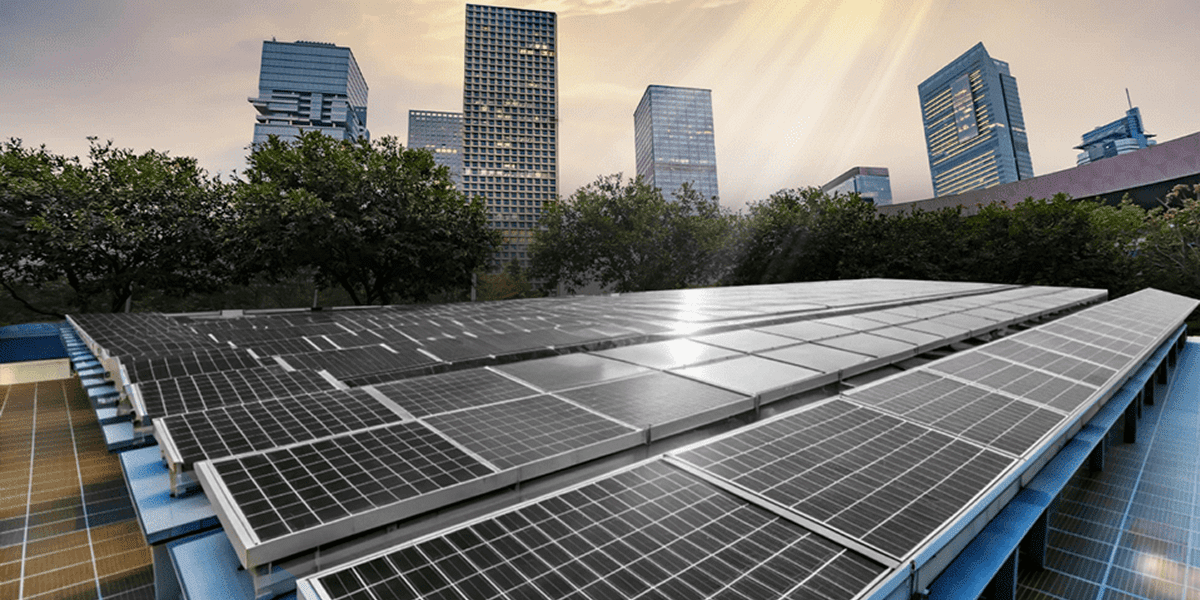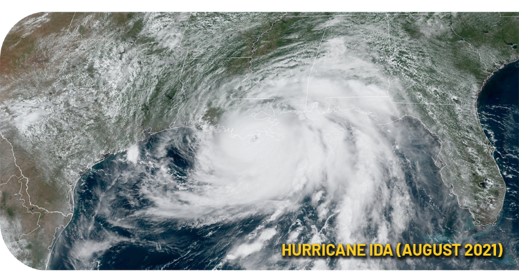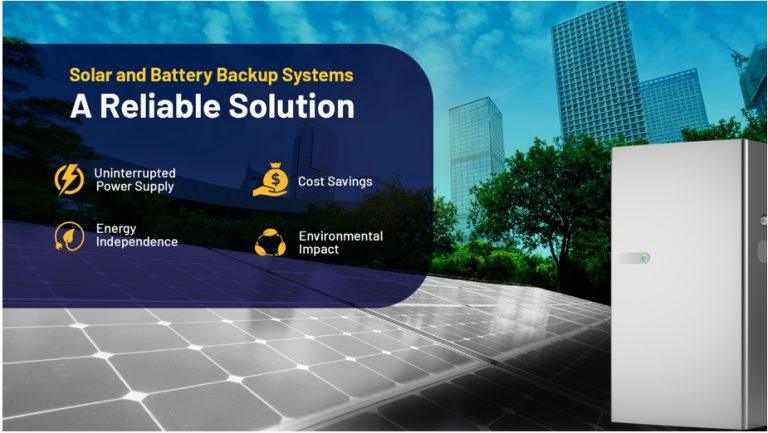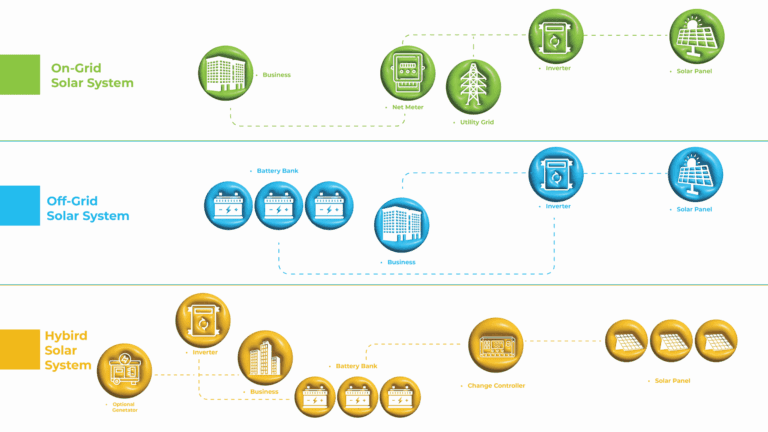- Published On:
Commercial Solar with Battery Backups: Less Grid Reliance & Maximum Profits
In the U.S., frequent and long power outages are increasing, costing many businesses a loss of billions a day. During the past few years, a 50% increase has been recorded in the long power outages. In 2023, businesses have been affected by power disruption averaging 20 days or more in the year. These disturbances interrupt operations, eliminating productivity and causing business organizations especially large ones to experience heavy losses. One of the major reasons why businesses suffer during storms or hurricane outages is grid reliance. Almost all operations and equipment require electricity to operate. The only solution for businesses to mitigate power disruptions is to reduce their dependence on grid power. Investing in commercial solar and battery backups is a smart solution for companies finding ways to become grid-independent.
During the day, solar panels produce electricity while in high demand or power outages, batteries store excess energy. Businesses can save energy costs and maintain power stability. Employing these technologies is a smart choice because it ensures continuous operation and long-term cost benefits.

The Impact of Power Outages on Businesses

Hurricane Beryl (July 2024):

Texas Winter Storm (February 2021):
The business sector suffered severely as a result of the February 2021 Texas Winter Storm. Almost two million companies in the state experienced disruptions due to the record cold weather and extensive power outages. Dallas saw historic low temperatures of -2°F, which led to an immense demand on the energy grid. The effect on companies was shocking. 30% of Texas firms suffered major operational losses due to extended power outages that lasted up to 72 hours. According to real-time statistics, the storm caused $4.5 billion in economic damages, forcing many businesses to temporarily close or operate at reduced capacity. The situation got worse by supply chain interruptions, which caused delays that affected delivery and inventory timetables. The intensity of the storm showed how conventional energy systems perform in severe weather. As a result, many companies are currently looking into alternatives to increase their resilience.

Hurricane Ida (August 2021):
The August 2021 hurricane Ida impacted companies around the Gulf Coast, especially in Louisiana. More than a million people lost power due to the storm, and in some places, the power outages lasted up to 2 weeks. There estimated damages and business disruptions is around $50 billion, indicating the severity of the economic consequences.

Small businesses severely impacted by the storm. Some had to temporarily stop operations, while others experienced the loss of perishable supplies due to power outages that lasted longer than a few days. The reports indicated that over 20% of New Orleans’ business owners were forced to temporarily close their operations, placing pressure on their earnings and the economy.
Businesses in the retail, restaurant, and healthcare sectors were severely disrupted. The need for backup generators in hospitals and urgent care facilities raised operating expenses. Restaurants had to discard food owing to refrigeration malfunctions, and retailers struggled with spoiling inventory and lost sales. The necessity for businesses to invest in resilient energy solutions is clear by these interruptions.

To mitigate the risks associated with grid reliance, many businesses are turning to commercial solar with battery backup systems. Here’s why:
- Uninterrupted Power Supply: During blackouts, solar panels and battery storage can offer a reliable power source. This will guarantee continuous power.
- Cost Savings: Businesses can reduce energy costs by investing in solar panels and batteries. Utility costs also reduce by solar energy, and battery systems can store extra energy during peak times or blackouts.
- Energy Independence: Solar and battery systems enable companies to have more control over the energy sources, and improve the business continuity in cases of power outages.
- Environmental Impact: Using renewable energy sources, such as solar energy decreases the emission of carbon, thus, meeting more corporate sustainability efforts and the firm’s image gets a boost.
Recommended Options for Businesses for Embracing Solar by SolarSME
Installing solar power offers a compelling solution for companies looking to reduce expenses and improve their energy resiliency. Here’s how to make a well-informed decision.
Solar System Options

- On-Grid Solar Systems: Such systems are tied to the utility grid and hence, they harness energy from both the photovoltaic solar systems arrays as well as the grid. These systems are suitable for those who want to have an advantage of solar power while connected to the power grid. On-grid systems eliminate electricity expenses as well as net metering options to sell and earn rewards.
- Off-Grid Solar Systems: Off-grid systems are suitable for businesses in remote places or those wanting complete energy independence because they are independent of the utility grid. To keep these systems powered when the sun isn’t shining, battery storage is needed. Off-grid systems guarantee consistent electricity and can be especially helpful in locations that have regular power outages.
- Hybrid Solar Systems: Hybrid systems combine aspects of off-grid and on-grid systems to provide flexibility. They enable businesses to store excess energy and use it during grid outages or periods of peak demand. This approach offers the best option by balancing between grid connection and energy independence.
Building Microgrids
To provide a reliable, self-sustaining energy supply, a microgrid is created by combining solar power with local energy sources and battery storage. Microgrids have the potential to reduce energy costs for businesses, improve energy security, and lessen reliance on the central grid.
Financing Options and State Incentives
Financing solutions including power purchase agreements (PPAs), solar leases, and loans, are available to facilitate the adoption of solar energy. State incentives can also significantly reduce upfront costs; these include tax credits, rebates, and grants. For instance, multiple states have their incentives to further reduce costs, and the federal solar investment tax credit (ITC) offers a 30% credit on the cost of solar systems.
Exploring these options allows businesses to choose a solar solution tailored to their needs, reduce grid reliance, and achieve long-term financial savings.
Conclusion
To achieve efficiency and mitigate power issues, going solar is the need of time for businesses in the U.S. Investing in solar is totally worth it leading to maximum production, uninterrupted operations, energy expenses saving, and ultimately more profits. The commercial solar upfront cost may seem higher but 30% tax credit and several state incentives support cutting the installation expenses. However, it is important to switch with a certified commercial solar installer for top-quality solar systems according to the energy needs. As inflation is booming, energy prices will also go higher and grid reliance is not a good option though. So, get a FREE quote of your savings and start your solar journey.
